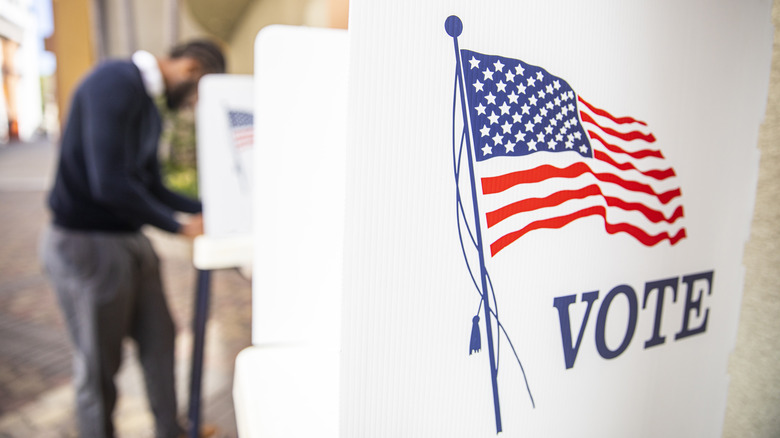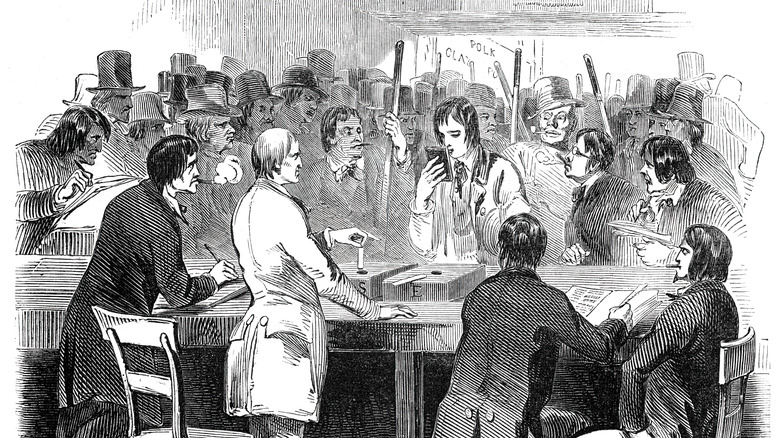Why Election Day Is In November
American presidential elections are notable for their regularity. The general elections of the United Kingdom take place roughly every five years but can be called almost at any time — known as a "snap election" — by the party of government for political benefit. Conversely, in the United States the presidential election has taken place in November every four years without exception since the election of George Washington back in 1788.
And since the Presidential Election Day Act of 1845, the important vote has always taken place on a Tuesday. But such timings aren't arbitrary: While today it is arguable that a presidential election could easily be held at any time of the year and on any day of the week, the weekly habits of everyday Americans and the seasonal nature of much of the country's work at the time made Tuesday in November especially timely. Let's take a closer look at what we mean.
Elections after harvest season
The timing of the U.S. presidential elections was a response to the widespread agricultural work that characterized the lives of a large proportion of Americans in the early years of the country. The seasonal work of farmers becomes most intensive between spring and fall each year — from the point at which the earth is prepared and crops are sown right through to harvest time. With so many Americans working hard during this period, legislators decided that calling an election at this time would be disruptive to working practices, or else the work in question would lead to a reduction in voter turnout. It goes without saying that the communication technology of the day was in its infancy, and for many rural Americans heading to a voting station was an arduous and time-consuming task.
However, it was also observed that holding elections in the middle of winter would also impact potential voters. Notably, weather conditions could make travel more difficult, dangerous, or — in the case of severe snowstorms — practically impossible. November therefore became the obvious choice for the country's most important democratic process.
But why a Tuesday?
In 1845, Congress passed legislation requiring presidential elections to take place on the Tuesday following the first Monday in November — a requirement that was first enacted in the 1848 election.
There were a few reasons why this particular wording made sense for the agricultural voters of the day. First, Wednesdays were typically market days throughout the country, an important day of the week for many farmers after harvesting. Similarly, Sundays were an important day of rest for agricultural workers, many of whom were Christian churchgoers. The same voters also viewed November 1 — All Saints' Day — as a religious holiday, and timing the election after the first Monday ensured that it would never fall on this date. Similarly, hosting an election on a Tuesday allowed a day's travel for voters who needed it without interfering with Sunday worship.


